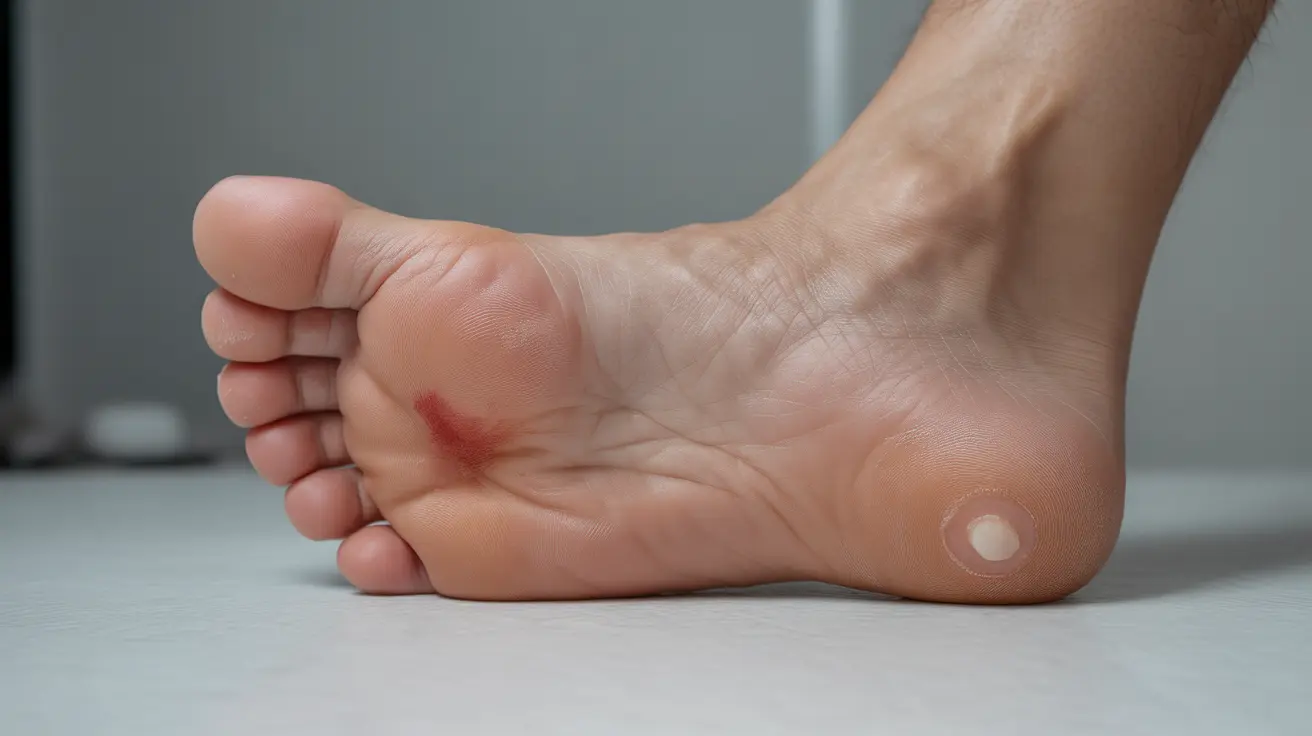Experiencing itchy toes can be both uncomfortable and concerning, especially when the irritation persists between the toes. This common condition can significantly impact daily comfort and may signal various underlying health issues that require attention. Understanding the causes and available treatments is crucial for finding relief and preventing future occurrences.
While itchy toes might seem like a minor inconvenience, they can be a symptom of several different conditions, ranging from simple skin irritation to fungal infections. Let's explore the various causes, treatments, and preventive measures to help you maintain healthy, itch-free feet.
Common Causes of Itchy Toes
Several conditions can lead to itchy toes, with some being more common than others:
Athlete's Foot
This fungal infection frequently causes itching between the toes and is characterized by dry, flaky skin and occasional burning sensations. The warm, moist environment between toes creates an ideal breeding ground for fungal growth.
Contact Dermatitis
Exposure to irritants such as harsh soaps, new shoes, or certain fabrics can trigger an allergic reaction, leading to itchy, inflamed skin between the toes.
Excessive Sweating
Hyperhidrosis, or excessive sweating, can create moisture between the toes, leading to skin irritation and itchiness.
Identifying the Root Cause
To determine the specific cause of your itchy toes, observe these distinguishing characteristics:
- Scaling or peeling skin between toes (typically indicates athlete's foot)
- Redness and inflammation (common in allergic reactions)
- Blisters or small bumps (may suggest contact dermatitis)
- Cracking or fissures in the skin (could indicate severe dryness or infection)
Effective Treatment Options
Over-the-Counter Solutions
Many cases of itchy toes can be effectively treated with readily available medications:
- Antifungal creams or sprays for athlete's foot
- Antihistamine creams for allergic reactions
- Moisturizing lotions for dry skin
- Medicated foot powders for excess moisture
Home Remedies
Several natural solutions can provide relief from itchy toes:
- Tea tree oil applications (with proper dilution)
- Regular foot soaks in warm water with Epsom salts
- Careful drying between toes after bathing
- Using breathable cotton socks
Prevention Strategies
Preventing itchy toes involves maintaining good foot hygiene and creating an environment where problems are less likely to develop:
- Keep feet clean and thoroughly dry, especially between toes
- Wear breathable shoes and moisture-wicking socks
- Change socks daily or more frequently if feet become sweaty
- Avoid sharing footwear or walking barefoot in public areas
When to Seek Medical Care
While many cases of itchy toes can be managed at home, certain situations warrant professional medical attention:
- Symptoms persisting beyond two weeks despite treatment
- Development of severe pain or swelling
- Signs of infection, such as warmth or pus
- Spreading of the affected area beyond the toes
Frequently Asked Questions
What are the most common causes of itchy toes, especially between the toes? The most common causes include athlete's foot (fungal infection), contact dermatitis, excessive sweating, and allergic reactions to footwear or socks.
How can I tell if my itchy toes are caused by athlete's foot or another skin condition? Athlete's foot typically presents with scaling, peeling skin, and intense itching between the toes. Other conditions like contact dermatitis usually show more general redness and inflammation without the characteristic scaling.
What are the best treatments for relieving itchy toes at home? The best home treatments include over-the-counter antifungal medications, proper foot hygiene, regular drying between toes, and using appropriate foot powders or creams based on the underlying cause.
How can I prevent athlete's foot and other infections that cause itchy toes? Prevention involves keeping feet dry, wearing breathable shoes and moisture-wicking socks, changing socks regularly, and avoiding walking barefoot in public areas like pools or gym showers.
When should I see a doctor if my itchy toes do not improve or get worse? Seek medical attention if symptoms persist for more than two weeks despite home treatment, if you develop severe pain or swelling, or if you notice signs of infection such as warmth, redness spreading beyond the toes, or pus.




